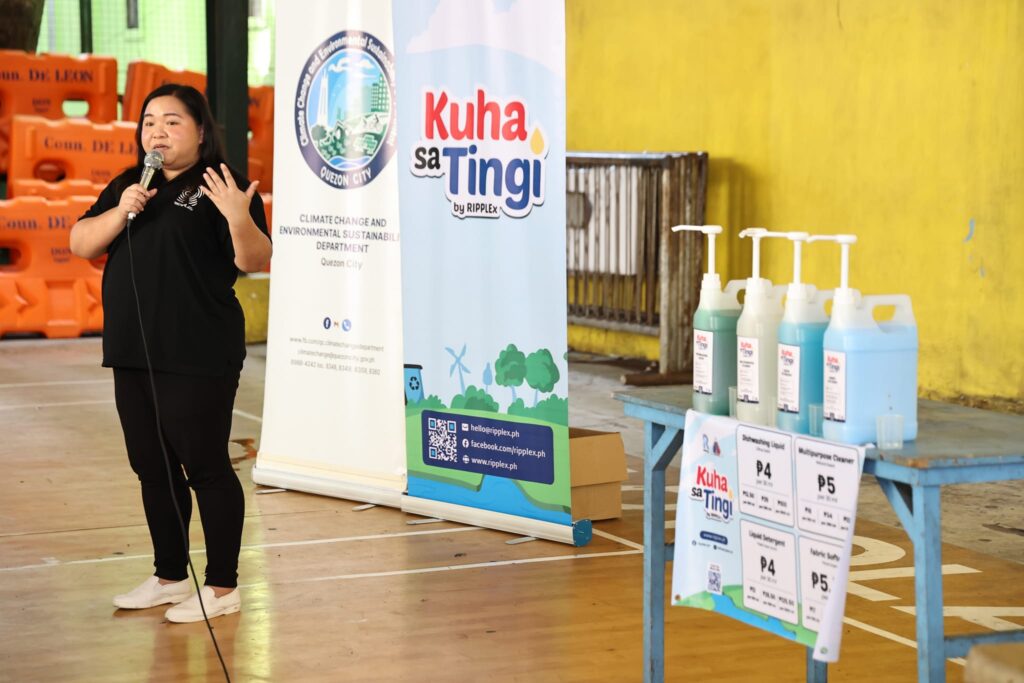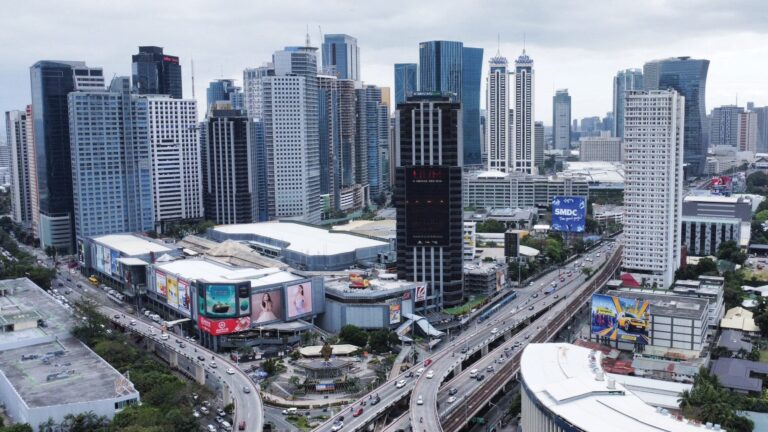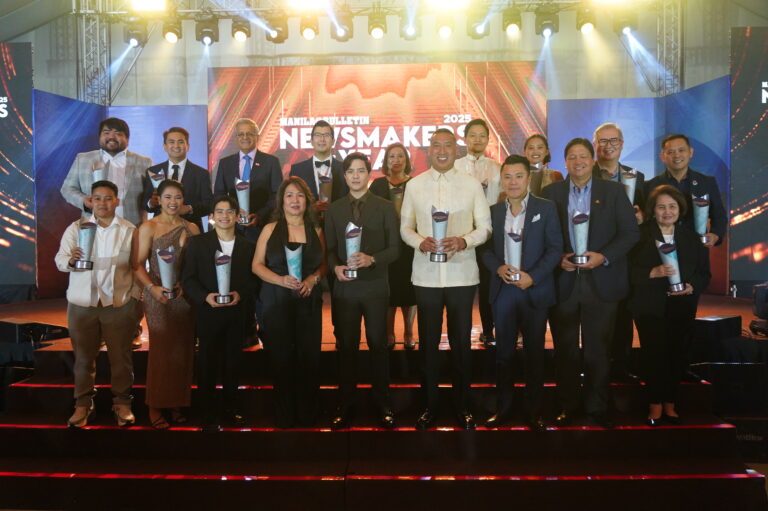A look back at 25 years of progress, collective action to end plastic pollutionAs talks on the escalating plastic waste make headlines, we’re quick to feel paralyzed knowing it poses harm to our health and shared home. Turn on the TV, and there’s a good chance you’ll hear of plastic pestering our environment. Step outside, …
A look back at 25 years of progress, collective action to end plastic pollution
As talks on the escalating plastic waste make headlines, we’re quick to feel paralyzed knowing it poses harm to our health and shared home. Turn on the TV, and there’s a good chance you’ll hear of plastic pestering our environment. Step outside, and you’ll likely spot single-use plastics (SUPs) scattered along sidewalks, public trash bins with overflowing plastic packaging.
Despite being widespread today, plastic did not exist until some decades ago. We, and even product packaging, relied heavily on paper, cloth, and glass (for reuse) for several periods in history, proving life without the pollutant is attainable. And in the past 25 years, civil society groups have pushed to restore what was long the norm: a plastic-free society.
Here’s a look at what we’ve done to achieve a world without plastic waste.
Plastic treaty talks
A floodlight of hope was felt in early 2022 when 175 countries agreed at the UN Environment Assembly to stop plastic pollution and create the first treaty for it by the end of 2024 (to resume 2025).
World leaders during last year’s plastic treaty talks tackled global measures to address the material’s entire lifecycle, adopt proper waste management, promote a reuse-based economy, and make polluters pay for a just transition away from plastics and toward circularity.
The recent discourse, said Executive Secretary of the INC on Plastic Pollution Jyoti Mathur-Filipp, will set the foundation for a binding agreement once negotiations resume this year.
“Talks have moved us closer to a plastics treaty that will protect our future and end plastic pollution,” she expressed.
Meanwhile, in a 2024 survey conducted by Greenpeace and Censuswide, 94 percent of Filipinos agreed to a global plastics treaty that would necessitate cuts in global plastic production, while 90 percent supported banning SUPs.
The Philippines backed the development of a science-based plastics treaty in earlier negotiations.
Local governance goes green
In Metro Manila, plastic bag ban and limit on dry and wet goods was first achieved in 2010 in Muntinlupa City. Through its Ordinance No. 10-109, Bring Your Own Bag, which also forbids use of styrofoam, third-time offenders shall be fined ₱2,500 and/or face cancellation of license to operate. This move was one of responses to frequent flash floods hounding the city.
Pasig City followed suit the same year. It passed an ordinance banning and restricting plastic bags for dry and wet goods. The city’s Ordinance No. 9 also limits styrofoam use for food containers, disposable cups, plates, and similar items. Most, if not all fast-food chains here today no longer offer plastic bags.
Las Piñas City adopted the plastic bag ban and limit in 2011 when it prohibited the material and styrofoam for commercial and individual use.
Marikina City came next in 2012 with a gradual phase-out of plastic bag use, followed by Caloocan City (which also demands retail outlets have a plastic recovery bin) and Mandaluyong City (which started prohibiting plastic bags and styrofoam in a three-year span) in 2013.
Meanwhile, Pasay City totally banned plastic carry-out bags in 2019, the year Quezon City government also enforced the ban on the distribution of SUPs (including spoons and forks, knives, cups, plates, straws, coffee stirrers, and other disposables) in restaurants and hotels for dine-in transactions. Handing out personal hygiene items that come in SUP is also forbidden in hotels in QC.
The Parañaque ban on SUP for dry goods and the distribution of plastic products (bags, straws, cutlery, cups, stirrers, and styrofoam) took effect in 2020.
In 2021, QC, through its Environmental Protection and Waste Management Department, re-implemented the city-wide plastic bag ban or City Ordinance 2868-2019.
All shopping malls, supermarkets, fast-food chains, drug stores, and other retailers registered under the Business Permits and Licensing Department are prohibited from handing out plastic bags to customers, QC Mayor Joy Belmonte said in a memorandum.

Rise of refill hubs
Buying basic cleaning items from sari-sari stores within neighborhoods is commonplace for the common Filipino. To combat single-use sachets, several eco-projects now aim to redefine the “tingi” (buying per piece) habit in pursuit of plastic reduction by converting such stores into refill hubs.
Called “Kuha sa Tingi,” the program by Greenpeace PH has rolled out in Quezon City, San Juan City, and Pasig. It announced expansion across all cities in Metro Manila in September 2024, when San Juan, Parañaque, Caloocan, Valenzuela, Muntinlupa, and Navotas followed suit and vowed to convert eight sari-sari stores into refill hubs.
“A reuse-based economy in which every Filipino has access to reuse systems and affordable alternatives to single-use plastics is possible. The expansion of ‘Kuha sa Tingi’ across Metro Manila is a testament to the strength of community-driven solutions,” said Marian Ledesma, zero waste campaigner at Greenpeace PH.
Refill hubs are also a win-win situation for both consumers and store owners.
Consumers averaged 201 percent in savings with refills over sachets, while store owners marked a 15 percent profit increase, according to a report by Greenpeace PH, which gathered data from San Juan and Quezon City refill stations.
Sustainable stores
Similar to refill hubs, eco-friendly stores where you can buy items like trail mix, local coffee beans, tea, and dried fruits by refill, like those at Maginhawa St. Eco Store, Tingi Station in Baguio, and Croft Bulk Foods in Davao, are pushing to eliminate plastic use by requiring customers to bring a container and a shopping bag if they wish to buy.
“We don’t need to practice the perfect type of zero waste. This means taking small steps, but collectively. We need millions of people to practice living a low-impact lifestyle,” said Dakila Cutab, co-owner of Maginhawa St. Eco Store.






